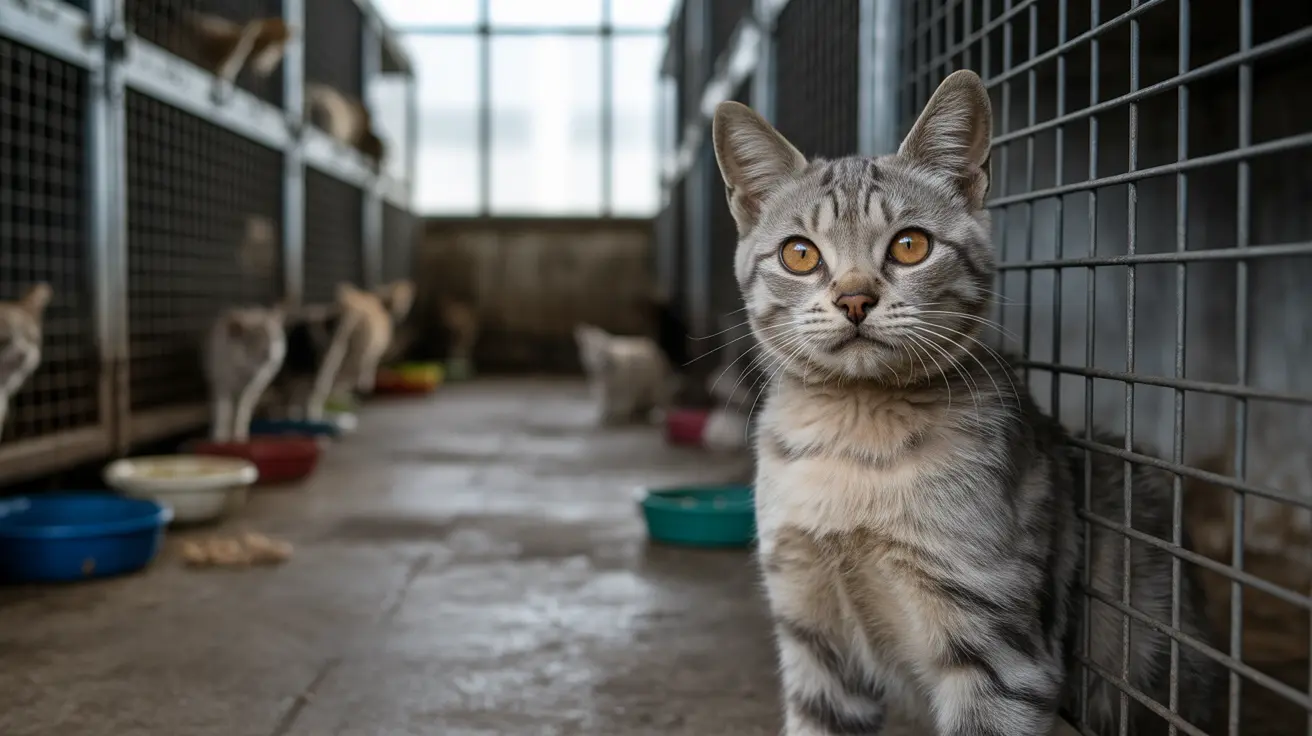What is Ulcerative Colitis in Cats?
Ulcerative colitis in cats is a serious inflammatory condition affecting the colon, characterized by the formation of ulcers and the presence of specific immune cells called histiocytes. This rare but severe condition can significantly impact a cat's quality of life, causing chronic digestive issues and requiring careful medical management.
While less common than other digestive disorders in cats, ulcerative colitis demands attention due to its potential for causing long-term health complications. Understanding this condition is crucial for cat owners and veterinary professionals alike, as early detection and proper treatment can make a significant difference in outcomes.
Signs and Symptoms
Cats suffering from ulcerative colitis typically display several distinctive symptoms that owners should watch for:
- Chronic diarrhea, often containing blood or mucus
- Noticeable weight loss despite normal appetite
- Frequent attempts to defecate with straining
- Visible discomfort during bowel movements
- Lethargy and decreased activity levels
- Dehydration in severe cases
These symptoms can vary in severity and may come and go over time, making it essential to maintain detailed records of your cat's symptoms for veterinary consultation.
Causes and Risk Factors
The exact cause of ulcerative colitis in cats remains somewhat mysterious, though research has identified several potential contributing factors:
- Bacterial infections, particularly involving E. coli
- Immune system dysfunction
- Genetic predisposition
- Environmental stress factors
- Dietary sensitivities or allergies
Understanding these risk factors helps veterinarians develop targeted treatment approaches and preventive strategies for affected cats.
Diagnosis Process
Diagnosing ulcerative colitis in cats requires a comprehensive approach:
- Detailed physical examination
- Blood work and fecal analysis
- Ultrasound imaging of the abdomen
- Colonoscopy with tissue biopsy
- Specialized testing for bacterial infections
This thorough diagnostic process helps distinguish ulcerative colitis from other digestive disorders and guides treatment decisions.
Treatment Options
Treatment for ulcerative colitis in cats typically involves a multi-faceted approach:
Dietary Management
- Prescription diets with novel proteins
- High-quality, easily digestible foods
- Fiber supplementation when appropriate
Medical Interventions
- Anti-inflammatory medications
- Antibiotics when bacterial infection is present
- Immunosuppressive drugs in severe cases
- Probiotics and digestive supplements
Success often requires a combination of these treatments, tailored to each cat's specific needs and response to therapy.
Long-term Management and Prognosis
Managing ulcerative colitis is typically a long-term commitment. With proper treatment and monitoring, many cats can achieve good quality of life, though regular veterinary check-ups and medication adjustments may be necessary. The prognosis varies depending on severity and response to treatment, but early intervention typically leads to better outcomes.
Frequently Asked Questions
What are the common signs and symptoms of histiocytic ulcerative colitis in cats?
The most common signs include chronic diarrhea (often with blood or mucus), weight loss, frequent attempts to defecate, and visible discomfort during bowel movements. Cats may also show decreased appetite and energy levels.
How is histiocytic ulcerative colitis diagnosed in cats, and what tests are involved?
Diagnosis involves a combination of physical examination, blood tests, fecal analysis, imaging studies (such as ultrasound), and most importantly, colonoscopy with tissue biopsy. These tests help confirm the presence of characteristic inflammatory changes and rule out other conditions.
What causes histiocytic ulcerative colitis in cats, and how is E. coli related to the disease?
While the exact cause isn't fully understood, E. coli bacteria have been identified as a potential trigger in some cases. The bacteria can invade the colon wall, leading to inflammation and ulceration. Other factors include immune system dysfunction and possible genetic predisposition.
What treatment options are available for cats with histiocytic ulcerative colitis?
Treatment typically includes dietary management, anti-inflammatory medications, and antibiotics when bacterial infection is present. Some cats may require immunosuppressive drugs. Probiotics and fiber supplements may also be beneficial as part of the treatment plan.
Can histiocytic ulcerative colitis in cats be managed long-term, and what is the typical prognosis?
Yes, the condition can be managed long-term with appropriate treatment and monitoring. While there's no cure, many cats achieve good quality of life with proper medical care. The prognosis varies but is generally better with early diagnosis and consistent treatment.






